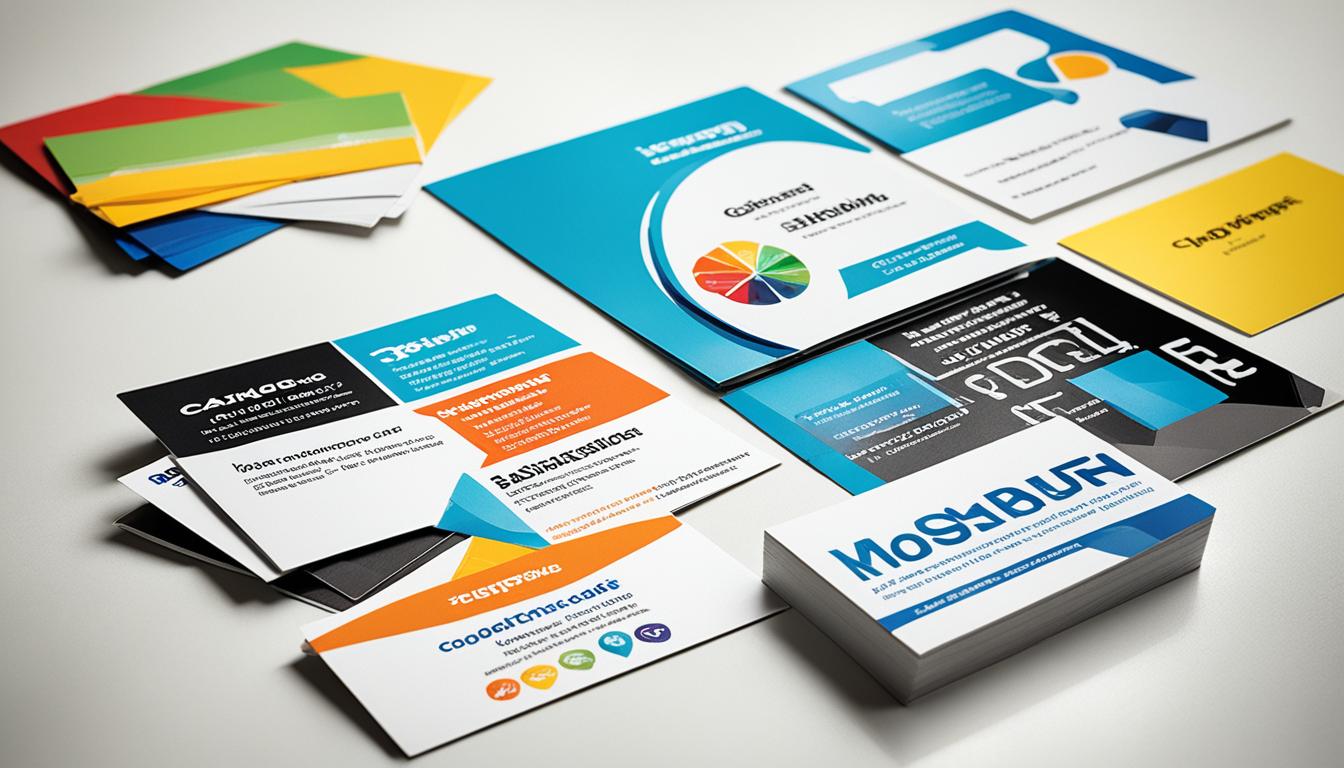Hotel marketing is key in the hospitality world. It helps get guests, boost bookings, and make the guest experience better. Hotels use digital marketing, improve their websites, use online booking, and run social media campaigns to stand out. We will look at examples of how hotels successfully market themselves and share tips on making marketing better.
Key Takeaways:
- Hotel marketing is crucial for attracting the right audience and enhancing the overall guest experience.
- Digital marketing strategies, website optimization, and social media campaigns are effective tools for hotel marketing.
- Examples of successful hotel marketing strategies will be discussed throughout the article.
- Optimizing marketing efforts is key to gaining a competitive advantage in the hospitality industry.
- Enhancing revenue management strategies can lead to increased bookings and revenue.
The Importance of Hotel Marketing Strategy
A great hotel marketing strategy is a must for any hotel’s success. In today’s market, it’s important to draw in guests and stay ahead. A strong brand and effective communication are crucial. Hotels can grow loyalty and attract customers by using targeted marketing and personalized experiences.
For hotels in a tight race, getting guests is crucial. A solid marketing plan lets hotels shine and show what makes them special. It helps to talk to the right people, show off the brand, and communicate well.
The power of a hotel marketing plan is in engaging people. Hotels can speak directly to their audience with specific campaigns. By knowing what guests like and their issues, hotels can offer personalized experiences that make an impact.
Moreover, a top-notch strategy lets hotels reconnect through targeted campaigns. They can find people who showed interest before using data. This helps hotels bring these people back, offer deals, and turn them into loyal guests.
Creating loyal guests is key for hotels. A full-on marketing approach helps keep the conversation with guests open. Hotels can solve problems, offer great service, and build lasting connections by staying in touch.
To wrap it up, a strong hotel marketing strategy is vital for any hotel business. It’s key to bring in guests, keep them interested, and build a solid brand. With good communication and targeted campaigns, hotels can keep guests coming back and win in the market.
Crafting Your Hotel Marketing Strategy
To build a great hotel marketing plan, focus on the essential parts. These include your brand’s message, the people you want to reach, the kind of hotel you have, and where it’s located. You also need to think about your budget, how you plan to tell people about your hotel, and how you’ll keep track of everything. All these elements are key to pulling in the right guests and making a real impact.
Defining the Brand Message
The heart of your hotel is its brand message. This message shows what’s unique and special about your hotel. It needs to clearly tell your hotel’s strengths, values, and what guests will get. This message makes your hotel stand out and is the base for all your marketing work.
Identifying the Target Market
Knowing who you want to attract is key for good marketing. You have to understand who they are, what they like, and what they need. This knowledge lets you make marketing that speaks directly to them. You can offer them what they want. Doing your homework on who your guests are helps you reach them better.
Considering Hotel Type, Location, and Budget
Your hotel’s type, where it is, and your budget are big factors in making a marketing plan. These details help figure out who your guests might be and the best ways to reach them. For instance, a luxury resort will use different tactics than a budget hotel for business travelers.
Selecting the Right Marketing Channels
Picking the right ways to reach people is vital. Think about where your future guests spend their time and what they pay attention to. This might be social media, emails, or online ads. Each way of reaching out has its own strategy for success.
It’s also important to track how well your marketing is doing. Keeping an eye on website visits, how many people book, and how engaged they are helps you know what’s working. This lets you make your marketing even better over time.
With a thoughtful marketing plan that looks at your hotel’s message, who you want to reach, and how, success is within reach. You’ll be able to stand out and bring in more guests and revenue.
Where to Spend Your Hotel Marketing Money
Hotels need to carefully plan their marketing budget for the best results. It’s important to know the latest trends and choose the best channels and tech. This can make a big difference in how well a hotel’s marketing works. Let’s look at some important areas for hotel marketing:
1. Online Review Sites
Sites like TripAdvisor are very important in shaping what guests think. They influence whether guests book or not. By focusing on their online presence and managing reviews well, hotels can gain trust and attract more guests. It’s crucial for hotels to find ways to do better on these platforms.
2. Social Media Marketing
Social media is now a key part of hotel marketing. Hotels can reach more people through platforms like Facebook, Instagram, and Twitter. By running social media campaigns, hotels can connect with guests and get more bookings. This helps hotels show what makes them unique.
3. Mobile Website Optimization
Many bookings now happen on mobile devices. This means hotels must make their websites work well on mobile. They should invest in making their sites easy to use on phones and tablets. A great mobile experience is vital for success today.
4. OTA Distribution
Online Travel Agencies (OTAs) offer hotels more visibility and bookings. Spending part of the marketing budget on OTA distribution can open up new opportunities. Hotels should consider how well OTA partnerships work and how cost-effective they are.
5. Hotel Technology Solutions
The hotel industry is always changing. Using the right tech can give hotels an advantage. This could be software for managing the hotel, improving guest experiences, or increasing revenue. Hotels need to decide what they need and invest in tech that helps them meet their goals.
| Marketing Channels | Benefits |
|---|---|
| Online Review Sites | – Build trust and credibility – Influence booking decisions – Increase online visibility |
| Social Media Marketing | – Connect with target audience – Increase brand awareness – Drive bookings |
| Mobile Website Optimization | – Enhanced user experience – Increased conversions – Cater to mobile booking trends |
| OTA Distribution | – Wider reach and visibility – Increased bookings – Tap into OTA user base |
| Hotel Technology Solutions | – Streamline operations – Improve guest experience – Boost revenue |
By putting their marketing budget in these areas, hotels can make their marketing better, get more bookings, and stay ahead in the digital world.
Hotel Marketing Examples
In hotel marketing, it’s crucial to use good strategies on digital platforms. Here are some tips to navigate digital marketing changes:
- Digital Marketing Strategies: Combine online ads, SEO, and content marketing. This mix helps reach more people and get leads.
- Social Media Campaigns: Post engaging content and ads on social media. Use Facebook, Instagram, and Twitter to promote your hotel and get more bookings.
- Video Marketing: Make exciting videos to show off your hotel’s features and guest experiences. Share them on your site, social channels, and YouTube.
- Mobile Optimization: Make sure your site and booking are easy to use on phones. With more bookings made on mobile, a mobile-friendly site is key.
- SEO Techniques: Use SEO to make your hotel more visible online. Work on your site’s content, meta tags, and get quality backlinks.
- Email Marketing: Create a list of past guests and potential customers. Send them personalized emails to boost open rates and conversions.
Using these tips, you can reach and connect with more people digitally. This can increase bookings and revenue for your hotel.
How to Measure Success in Hotel Marketing:
After learning the marketing tips, you must track the success of your efforts. Here are the metrics to keep an eye on:
| Metric | Description |
|---|---|
| Website Traffic | Check how many people visit your site, their origins, and their activities there. |
| Conversion Rate | See what percentage of site visitors book a room or take other actions. |
| Social Media Engagement | Look at likes, comments, shares, and general interaction with your social posts. |
| Online Reviews | Keep an eye on and answer reviews on TripAdvisor and Google My Business. This helps maintain a good image and address feedback. |
| Email Open and Click Rates | Monitor how well your email campaigns do by tracking opens and clicks. |
| Revenue Generated | Track the money made directly from marketing to see your return on investment (ROI). |
By watching these metrics, you can see how well your marketing works. Then, you can use data to make your strategies even better.
The Power of Content Marketing in the Hotel Industry
Content marketing is key for hotels to highlight their unique services. It helps them connect with future guests on a deeper level. Through storytelling, user-generated content, podcasts, and videos, hotels can create engaging content. This content speaks to their target audience.
Storytelling: Creating Unforgettable Experiences
Storytelling lets hotels bond with guests emotionally. Hotels tell captivating stories to show what guests can experience. Stories might share the hotel’s history, local culture, or insider views. This approach sparks curiosity and invites guests into the story.
User-Generated Content: Building Trust and Social Proof
User-generated content is a way for hotels to gain trust and show social proof. Hotels encourage guests to post reviews, photos, and videos of their stay. This authentic content from happy guests boosts the hotel’s credibility. It also serves as a strong marketing tool, as potential guests trust these real experiences.
Podcasts: Engaging Audiences through Audio
Podcasts are a popular way for hotels to reach their audience. Hotels might discuss travel tips, local attractions, or interview industry experts. This allows hotels to share valuable information and build a deeper connection. Podcasts give hotels a chance to showcase their knowledge and grow a dedicated listener base.
Video Marketing: Showcasing the Hotel Experience
Video marketing gives hotels a vibrant way to show what they offer. Through virtual tours or guest stories, videos give a glimpse of the hotel experience. Quality videos that stir emotions and highlight the hotel’s essence can draw viewers to book a stay.
Let’s look at some hotel campaigns that show the power of content marketing:
| Hotel | Campaign | Content Marketing Technique |
|---|---|---|
| The Dream Hotel | Experience the Magic | Storytelling |
| The Wanderlust Resort | Your Travel Stories | User-Generated Content |
| The Retreat Hotel | Wanderlust Podcast | Podcasts |
| The Luxe Resort | Journey to Paradise | Video Marketing |
These examples show how content marketing can upgrade the hotel experience and draw in guests. By using storytelling, user-generated content, podcasts, and videos, hotels can engage with their audience in a meaningful way. This helps them stand out in a crowded market.
Showcasing Bespoke Services Through Hotel Content Marketing
Hotel content marketing is a strong way for hotels to show off their unique services. This approach helps hotels stand out and be seen as focused on their customers. By creating and sharing targeted content, hotels can connect with people and set themselves apart from other places.
Social media is a great tool for showing unique services and experiences. Hotels can post great photos, videos, and stories on platforms like Instagram and Facebook. This helps grab the attention of potential guests and make a memorable impact.
Blogs are also useful for highlighting what makes a hotel special. For instance, a luxury hotel might talk about its special spa treatments or dining options in a blog post. Sharing these stories and details can draw in guests looking for something unique and personal.
Content marketing also lets hotels connect more deeply with people by sharing useful and entertaining information. By educating and engaging audiences through blog and social media posts, hotels can become trusted sources in their field. This approach leads to stronger guest relationships and more bookings.
In summary, hotel content marketing is an effective way to show off custom services and experiences. Using social media, blogs, and other channels lets hotels reach out to future guests. This strategy helps hotels stand out, connect with their audience, and leave a powerful impression.
Examples of Hotels Showcasing Bespoke Services Through Content Marketing
| Hotel | Content Marketing Strategy |
|---|---|
| The Ritz-Carlton | Curating a blog featuring personalized destination guides and customized itinerary ideas. |
| Four Seasons | Using social media platforms to share guest stories and highlight personalized touches in room decor. |
| Ace Hotel | Creating video content showcasing their unique event spaces and personalized event planning services. |
Making Hotel Marketing Affordable with Content Marketing
Content marketing gives hotels a low-cost way to meet their marketing targets. Hotels can boost their marketing with this strategy and keep costs low. This part talks about strategies like making content in-house, using social media, and paid ads.
In-House Content Creation
Creating content on your own is a smart move for saving money on marketing. With a team inside the hotel, you control the message and how your brand sounds. This method helps you make content that matters to your guests and highlights what makes you special.
Utilizing Social Media Channels
Social media lets hotels reach many people and talk to future guests without spending a lot. By making their social media profiles better, hotels can show off their brand, share news, and chat with fans. Social media also has affordable ads that let you reach the right people without overspending.
Utilizing Paid Advertising Platforms
Paying for ads can still be affordable and help hotels find the right guests and get more business. With Google Ads and social media ads, you can pick who sees your ads. This makes sure you spend your budget wisely and get good results from your ads.
Image:
Through these cost-saving methods, hotels can use content marketing to find their audience and hit their marketing goals.
Direct Communication with Customers Through Hotel Content Marketing
Hotel content marketing is key for talking directly with customers. It helps hotels give useful and fun content. This makes their online space better, answers customer questions, and builds trust. We will look into how hotels can use social media and blogs. These tools help talk directly with customers and give them the content they need.
Enhancing Customer Engagement Through Social Media
Social media is great for engaging customers. Hotels can make exciting content for platforms like Facebook, Instagram, and Twitter. They can chat with their audience, answer questions, and build a community feeling. Sharing photos of hotel features, behind-the-scenes stories, and special deals helps engage customers more.
The Power of Informative Blog Content
Blogs let hotels share useful content and show they are experts. Hotels can write posts that solve common problems, give travel advice, and talk about local spots. This makes them useful and credible to their audience. Good blog content also brings more people to the hotel’s website. This boosts online visibility and draws in new customers.
Hotels can add other helpful content to their blogs too. They can write city guides, packing tips, and travel articles. This answers the changing needs and interests of their audience. By always providing good content, hotels become trusted sources of info. They also create lasting relationships with their customers.
Driving Customer Loyalty Through Personalized Email Campaigns
Email marketing is still a strong way to talk directly with customers. Hotels can use their guest info to send personalized emails. These can offer special discounts, info about events, or useful destination tips. By making emails that match customer likes and needs, hotels can keep customers coming back.
Utilizing User-Generated Content for Customer Testimonials
User content, like reviews and testimonials, really affects a hotel’s online look and credibility. Hotels should get guests to share their experiences. They can ask for reviews, show testimonials on their website, or start social media campaigns. This lets guests share their great times.
Showcasing real customer feedback helps hotels build trust and a better online reputation. This draws in more potential customers.
In conclusion, hotels can talk directly with their customers in many ways through content marketing. Using social media, blogs, email marketing, and user content helps improve customer engagement. It also makes the hotel’s online space better and provides useful info. A full content marketing plan helps hotels connect better with customers, stand out from competitors, and grow their business.
Successful hotel content marketing relies on some key factors. These include setting marketing goals, knowing the audience, choosing the right channels, and delivering top-quality content. By doing these things well, hotels can grow their business. They can also stand out in a crowded market.
Setting Clear Marketing Goals
It’s important for hotels to set clear marketing goals. They should be specific, measurable, achievable, relevant, and time-bound (SMART). This way, they make sure their content marketing supports their business goals. Goals could be increasing bookings, boosting brand awareness, or better engaging with customers.
Identifying the Target Audience
Knowing who you’re trying to reach is key for effective hotel content marketing. Hotels must research their market and build detailed profiles of their ideal guests. This helps create content that appeals directly to them. This leads to better engagement and results.
Choosing the Right Content Marketing Channels
Hotels have many content marketing channels to choose from. They must pick the ones that best fit their goals and audience. Whether it’s social media, emails, blogs, videos, or podcasts, the right channels help reach and engage the audience well.
Consistently Delivering High-Quality Content
Being consistent is crucial in hotel content marketing. Hotels should keep a regular schedule for producing engaging content. This may include blog posts, social media updates, emails, or videos that are interesting and useful to their audience. Staying consistent helps build trust, position the hotel as a leader, and attract loyal customers.
In conclusion, the core of successful hotel content marketing lies in having clear goals, understanding the audience, selecting the best channels, and offering great content consistently. These steps help hotels make the most of content marketing and meet their marketing goals.
Conclusion
Hotel marketing is crucial in the hospitality world. It helps draw in customers and keeps hotels ahead in the competition. Using content marketing is key to attract and keep guests, boost the hotel’s image, and grow income.
By having clear marketing plans and using content marketing well, hotels can really engage customers. They should always look for new trends and innovate to stay on top. This helps them remain leaders in the busy hotel market.
Hotels need to focus on connecting with customers to succeed in hotel marketing today. Sharing useful and interesting content helps build trust. It also starts direct talks with customers, leading to more bookings and happy guests.
A strong hotel marketing plan that includes content marketing offers many benefits. Hotels should listen to what customers want, use smart marketing methods, and keep improving. This way, they can make a lasting impact, build solid relationships with customers, and push their business forward in the fast-changing hospitality scene.




